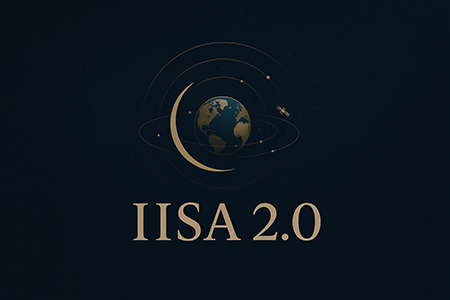Earlier this year, IISA published an Annual Strategic Brief as part of the ‘Ibn Khaldun’ paper series (http://iisa.org.uk/ibn-khaldun-paper-series/2016/06/annual-strategic-brief-2016-geopolitics-in-the-middle-east/) focusing on geopolitics in the Middle East. Our main argument was that the state of conflicts and geopolitics in the Middle East is much more complex than conventionally thought, and comprises ‘internal’ and ‘external’ struggles. Internal struggle is between local and regional states and non-states, and external struggle is mainly between Russia and the US.
The ‘external’ struggle between Russia and the US still defines and is the main component of geopolitics in the Middle East.
If the readers of this report had the opportunity to read our Annual Strategic Brief/Ibn Khaldun paper as noted above, you may be more familiar with the issue, and would have expected the similar outcomes as we forecasted.
If not, this report could be a more easy-to-digest reminder of the issues, and of Russian ambitions in the Middle East.
To start with, in order to make sense of Russia and its role on the global stage, it is crucial to understand who runs Russia and how those running Russia see the world. Putin is a product of the Cold War and sees the west not just as geopolitical rivals but also an ‘enemy’ to some extent. This Russian thinking is reinforced by:
- Geography (Russia has been invaded many times over by European forces, as there is no geographical barrier that could stop an invading European force marching on Moscow etc.),
- Ideology (the Cold War maybe over, but Russia still feels that it has a role to play in the international system, which it believes is its inherent right)
- Economy (the economic sanctions and slumped oil prices are hurting Russia internally, a weekend Russia can crumble, hence Russia must exert its power externally)
- And national interests (Putin and the Russian regime are very much aware that an internal security strife is directly linked to the external security situation. Putin is a realist who knows the only way to control domestic politics is to project Russia as a global leader. Russia is also concerned about the rise of China and its in-reach to Russian sphere of influence i.e. Central Asia. So to balance China, Russia must be a bigger and stronger international player) etc.
In essence, Putin’s Russia is very much concerned with NATO’s ambitions, the domestic security conundrum, and the changing international system and Russia’s place in it. Put simply, nothing has really changed since we published the Ibn Khaldun paper on the Middle East a few months ago.
The report forecasted that any ceasefire on Syria was almost impossible. We are essentially seeing that in play.
To understanding the intensity of Russian onslaught in Aleppo Syria is to understand the bigger picture, briefly described above. The key point is that the ferocity of aerial attacks and the destruction that it causes is a means to an end, not an end in itself. Russia is using tried and tested tactics that it has previously used in Afghanistan or Chechnya etc. The Russian aim is to demoralise the opposition beyond recovery, and to control territory so that it can implement its own solution (which suits Russia).
This leads us to question the other player of the exterior struggle, the United States, and its strategy. Well for now it may be obvious to some keen readers, that there isn’t one. No effective plan B was created by the US in case the ceasefire failed. The US and its allies remain divided on how best to deal with Russia and their priority remains fully focused on countering the Islamic State (IS). There is also the question of the change of administration within the next few months, so no concrete strategy by the new administration can be expected before mid – 2017. Russia knows this very well and is using this time and uncertainty to its advantage by using hard power to its max.
Syrian opposition remains politically and militarily divided. The Gulf States and Turkey are either in internal strifes, or politically weakened. So Russia does what it knows best; destruction beyond recognition. It claims that it is only attacking ‘terrorists’ in Aleppo.
And yes, we have not forgotten to mention the people’s suffering, regardless of which perspective you believe in. People are suffering beyond imagination. Therein lies the essential lesson: the Arab revolution was about the ‘people’ and their power. Readers must ask themselves a very simple question: in this day and age, do people actually matter?
The wars are beyond horrific. The level of human suffering is almost indescribable. But in essence they are a force of great change. What we are witnessing today is a changing of the Middle East and of the international order by Russia and its allies, while the west and the rest of us sit and watch.
